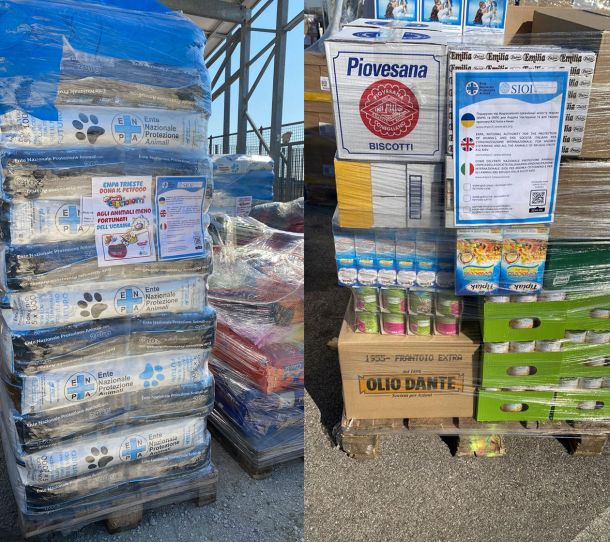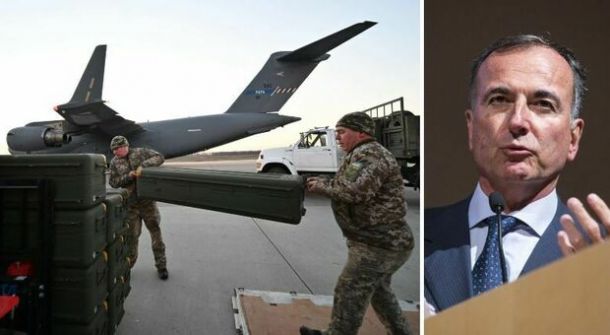- Home
- Archivio
- Politica internazionale
- Frattini: “We must strengthen the countries that are most vulnerable to radicalization”
Frattini: “We must strengthen the countries that are most vulnerable to radicalization”

RIYADH 21 May, 2017: Addressing deep Roots : True religion has little to do with terrorist indoctrination on recruitment. It is war for power, for predominance for money. Recrutees are used and abused .
Appeal to the pure doctrine is an excuse to expand territorial influence or increasing illegal trafficking, from oil to archaeological pieces stolen on occupied areas, to the trafficking of migrants Poverty, despair, but also mistakes made by the West (exporting democracy etc) explain why so many young people become victims of radicalisation. Never those reasons can be justifications.
But political strategy is needed purely military response is insufficient. When terrorists expand their actions – we don’t miss weapons – we miss political leaders capable to engage and to enable partners to deeply engage on the military action coordination and strategy no dialogue whatsoever with terrorists helping the populations in the areas liberated with economic and development support in order to avoid some kind of nostalgy for those that, while occupied through terror, provided food and helped the daily life never should happens that a “liberated” city is forgotten! Liberation of Mosul, for ex., should be the start of a new life, not the simple end of terror with no perspectives to restore dignity and quality of people’s life
1) First : way of relations with muslim countries that are most at risk should be different – from old paradigms rich donor – poor recipient to equal partnerships that enable our partners to be protagonist
AVOID Double mistake first, playing as global cop then, withdrawing and leaving a country (Lybia) to its destiny. Co-engagement common interest from tolerance to respect to partnership based on mutual trust (including more intelligence sharing as Jordan pres. of Senate said)
2) Strengthening the countries most at risk – investments, helping reducing poverty, investing in the youth and education (es. Erasmus for Mediterranean – free movement for students/professors
3) Cutting the enormous financial sources of terrorism
Illegal trafficking no complacency
No even indirect business contacts – tracking their financial movements
2) Second – open cooperation on security, based on mutual trust – overcome the “old approach” -we are the producers of security in your countries- You are in the lead, we support you with all means –
International terrorism made victims in the heart of EU – Many networks or simply groups or so called lone wolves are spreading in EU territories and close neighbourhood (Balkans) – Not only dealing with security prevention /reaction as we are obliged to do In the global security architecture concerning the common goal of destroying terrorist organisation,
I would see a possible, better perspective between the western alliance and Muslims world. Already some Sunni countries cooperate and have cooperated with NATO, though the existing NATO partnership models. But I think you, the Muslim Sunni countries should go beyond, and working to further integrate all those that share, as priority goal, the objective of fighting terrorism worldwide. I think that the Alliance against terrorism promoted under the leadership of the Kingdom of Saudi Arabia, is exactly the right step in that direction. I hope it will expand its scope and its membership. I hope that, in the spirit of mutual support and reciprocal help in case of need, that Alliance will be transforming into a true world Muslim Sunni anti- terror organisation, with the ambition to cooperate with Western Alliance and NATO in particular, on the basis of equal partnership. I think, in that case, you will enjoy a stronger commitment form the West because the only global challenge that we all, West, Africa, Muslim world, share how to improve war on terror worldwide. So, in that way entrusting partners and improving cooperation, from operational actions to information sharing, will be no longer the exception but a shared rule of engagement. So, I wish all the success to the Alliance that His Majesty the King of Saudi Arabia launched, all because all the national, regional and global players should be true producers of security to the good of the today’s world.
RIYADH 21 May, 2017: In a major event related to US President Donald Trump’s visit to the capital, international experts exchanged opinions and ideas at the Riyadh Forum on Countering Extremism and Fighting Terrorism, which was held at the Riyadh InterContinental Hotel on Sunday. Sponsored by the Islamic Military Counter Terrorism Coalition (IMCTC) and organized by the King Faisal Center for Islamic Research and Studies, the theme of the forum was: “The Nature of Extremism and the Future of Terrorism.”
Leading these personalities were: King Faisal Research and Studies Center Board of Directors’ Chairman Prince Turki Al Faisal; Director of Belfer Center for Science and International Affairs at Kennedy College for Government Sciences in Harvard University; Former American Secretary of Defense Ashton Carter; Chairman of the Italian Society for International Organization, Former Italian Foreign Minister, Former Italian Vice-President, and European Commissioner for Justice, Freedom and Security Affairs Franco Frattini with the participation of more than one hundred hosted experts, academicians, media men from inside and outside the Kingdom. The concluding speech of the forum was delivered by the Islamic studies professor in the University of Lebanon Dr. Rudwan Al Sayed, while King Faisal’s Center Secretary General, Dr. Saud Al Sarhan, reviewed the outcome and recommendations.
The secretary-general of the Center Saud Al-Sarhan said the forum discussed the nature, forms and influence of fundamentalism, the future of terrorism and the role of social media. Saudi Arabia has taken the initiative and played a lead role in the war on terrorism, he said, adding that the forum will bolster the Kingdom’s pioneering role regionally and internationally. Terrorism has had destructive effects on several countries such as Iraq, Afghanistan, Nigeria, Syria and Yemen over the past decade, and several Islamic nations have found themselves fighting terrorism alone, Al-Sarhan said. The forum’s agenda included four sessions that debated ways countries can work together against terrorism. IMCTC was launched in December 2015 by Deputy Crown Prince Mohammed bin Salman. The IMCTC is a 41-nation partnership of prepared partner countries unified in the battle against terror. IMCTC will give a platform for countries to suggest, argument, and promote cooperation among members and supporting nations for the implementation of efforts in four domains — ideology, communications, counter terrorism (CT) financing and military. The IMCTC will develop, collect, shop and disseminate a wide range of information on CT programs and best techniques embarked on by member nations and international organizations.






